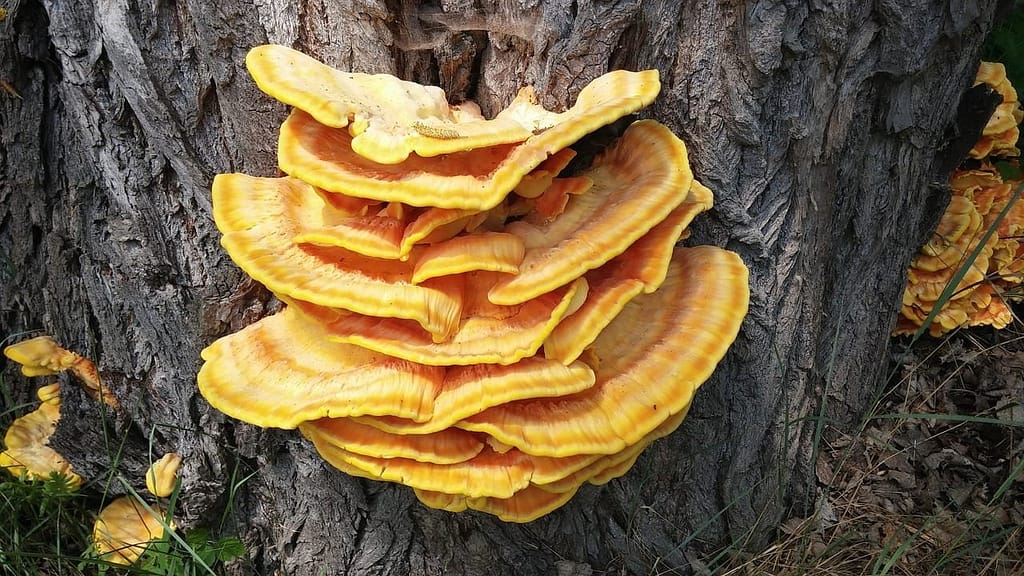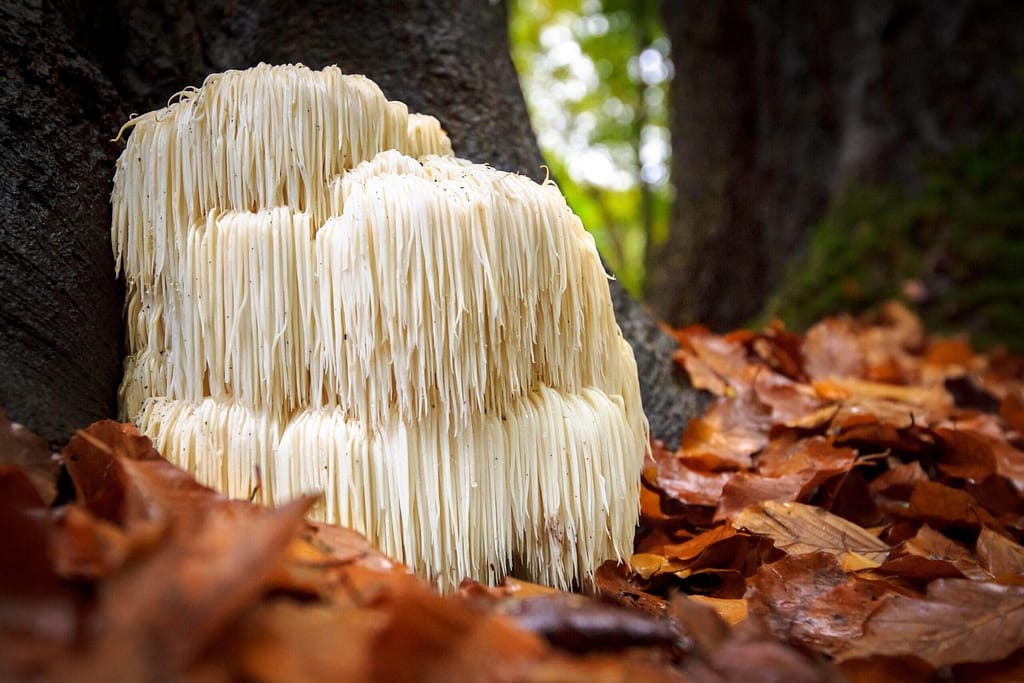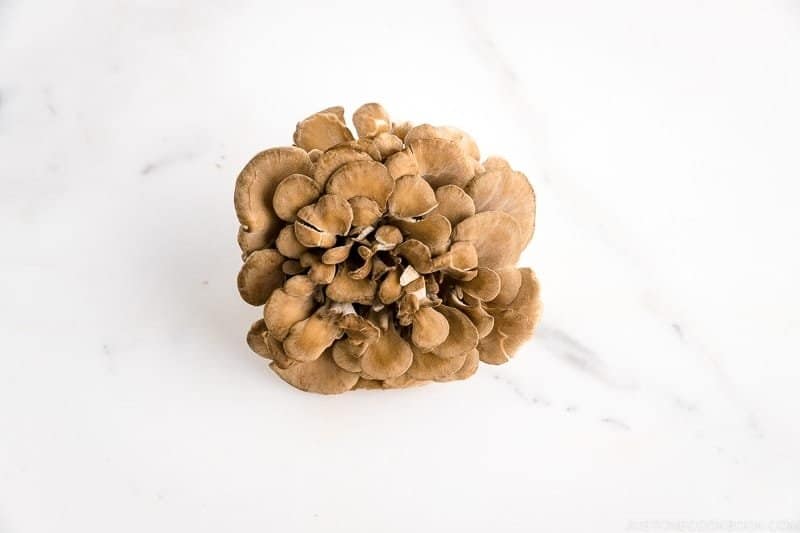
It’s All About The Fungi
The uniqueness of mushrooms lies in their classification as fungi rather than plants.
Unlike traditional vegetables, they derive from a fungal origin, growing from microscopic spores that come together. Then these spores to form the distinct cap and stem structure known as the mushroom.
This growth process, kind of like a plant’s fruit-bearing phase, is fascinating. It starts with the release of millions of spores that ultimately create the mushroom.
What sets mushrooms apart, beyond their biological profile, is their culinary appeal.
Mushrooms possess a delicate taste that spans a spectrum from mild to robust, offering a range of flavors to suit various tastes.
Also, the textures of these fungi is often compared to meat, giving a unique and satisfying mouth feel, especially in vegetarian or vegan dishes where they can serve as a meat substitute.
The combination of their unique taste and texture makes mushrooms a true edible gem.
This blend of features has earned them a special place in cuisines all over the globe in a wide array of recipes.
Read on for more info on this fascinating fungi !
Types Of Mushrooms
There are way too many varieties of mushrooms to cover here so I will touch only a handful in this article.
- Cremini, Portobello, Porcini: These are common varieties used in various cuisines, each differing in taste and texture.
- Shiitake, Oyster, Chanterelle, Enoki, Morel: These mushrooms have distinct flavors, appearances, and uses in cooking.
- Truffles: Among the most luxurious of mushrooms, truffles stand apart in the fungal world. Growing underground with tree roots, these elusive fungi develop a distinct aroma and flavor. Their appearance is unique, with an irregular, rough surface and a dark, earthy color. Truffles boast a pungent, musky aroma and an intense, almost intoxicating taste, making them a prized ingredient in haute cuisine. Their strong flavor profile allows them to shine in dishes like truffle-infused oils, sauces, and gourmet preparations.
Each mushroom brings its own distinct personality to dishes, allowing chefs and us, home cooks alike to experiment with flavors and textures, lifting meals from simple to amazing.
Understanding mushrooms enhances our cooking experiences and opens doors to being creative in cooking styles and recipes.
Medicinal Mushrooms
Lets take a look at a few types of medicinal mushroom and the benefits they have when we eat them.

Reishi (Ganoderma lucidum): Known as the “mushroom of immortality,” reishi is renowned for its immune-boosting properties and potential to reduce fatigue and stress.
- Longevity Tonic: Reishi has been revered in traditional medicine as the “elixir of immortality” due to its reputation for promoting longevity and vitality.
- Adaptogenic Properties: It’s considered an adaptogen, helping the body adapt to stressors and supporting overall well-being by regulating physiological functions.
- Immune Support: Studies suggest that reishi mushrooms contain compounds that enhance immune function by supporting the activity of white blood cells, potentially aiding in fighting infections and illnesses.
Chaga (Inonotus obliquus): Considered an antioxidant powerhouse, chaga is believed to support immune function and promote overall well-being.
- Antioxidant Powerhouse: Chaga is one of the richest sources of antioxidants, including substances like polyphenols and melanin, which can help combat oxidative stress in the body.
- Traditional Use: It has a long history of use in folk medicine in Siberia and other parts of Russia, where it’s been utilized for its potential immune-boosting and anti-inflammatory properties.
- Potential Cancer Benefits: Some studies suggest that chaga extracts might have anti-cancer properties, showing promise in slowing the growth of certain types of cancer cells in laboratory settings.

Lion’s Mane (Hericium erinaceus): Known for its unique appearance and potential cognitive benefits, lion’s mane is studied for its role in supporting brain health and potentially aiding nerve regeneration.
- Brain Health Support: Lion’s mane contains compounds that may stimulate the growth of brain cells and protect against neurodegenerative diseases like Alzheimer’s and Parkinson’s.
- Nerve Regeneration: Research indicates that it could potentially aid in nerve regeneration and repair, offering potential benefits for individuals with nerve damage or neurological conditions.
- Cognitive Enhancement: Preliminary studies suggest that lion’s mane might improve cognitive function, memory, and concentration, although further research is needed to confirm these effects
Cordyceps (Cordyceps sinensis): Often associated with increased energy levels and improved athletic performance, cordyceps is thought to enhance stamina and endurance.
- Energy and Endurance: Cordyceps is known for its potential to enhance athletic performance by increasing oxygen uptake and improving energy production, which may benefit endurance athletes.
- Traditional Use: Originating from Tibetan and Chinese medicine, cordyceps has been historically used to combat fatigue, boost stamina, and support overall vitality.
- Adaptogenic Properties: Like reishi, cordyceps is considered an adaptogen, aiding the body in managing stress and potentially balancing various physiological functions.

Turkey Tail (Trametes versicolor): Recognized for its immune-modulating properties, turkey tail is studied for its potential in supporting immune function, particularly in cancer patients.
- Immune Modulation: Turkey tail mushrooms contain polysaccharopeptides, which are believed to stimulate the immune system, especially in individuals undergoing cancer treatments.
- Research in Cancer Treatment: Research suggests that extracts from turkey tail mushrooms might have potential in adjunct cancer treatments, particularly in improving immune function in cancer patients.
- Digestive Health: Some studies indicate that turkey tail could positively impact gut health by promoting the growth of beneficial gut bacteria and supporting overall digestive function.
Shiitake (Lentinula edodes): Besides being a culinary delight, shiitake mushrooms are being researched for their potential cholesterol-lowering effects and immune support.
- Heart Health: Shiitake mushrooms contain compounds like eritadenine that may help lower cholesterol levels, promoting heart health and reducing the risk of cardiovascular diseases.
- Antioxidant and Anti-inflammatory: Rich in antioxidants and anti-inflammatory substances, shiitake mushrooms have potential in reducing inflammation and combating oxidative stress in the body.

Maitake (Grifola frondosa): Known for its potential to support immune health and regulate blood sugar levels, maitake is studied for its anti-inflammatory and antidiabetic properties.
- Blood Sugar Regulation: Maitake mushrooms contain compounds that might help regulate blood sugar levels, making them potentially beneficial for individuals with diabetes or insulin resistance.
- Immune-Stimulating Properties: They are known for their ability to support immune function by enhancing the activity of certain immune cells.
- Antioxidant Effects: Maitake mushrooms possess antioxidant properties, aiding in combating oxidative stress and potentially reducing the risk of chronic diseases.
Truffles
- Unique Growth and Rarity: Truffles grow underground in a symbiotic relationship with certain tree roots, typically oak and hazelnut trees. Their rarity and the difficulty in cultivating them contribute to their high value in the culinary world.
- Distinct Flavor Profile: Truffles have a powerful, distinctive aroma and flavor that add depth and richness to dishes. Their earthy, musky taste is highly sought after in gourmet cuisine, often used sparingly to elevate the taste of various dishes.

